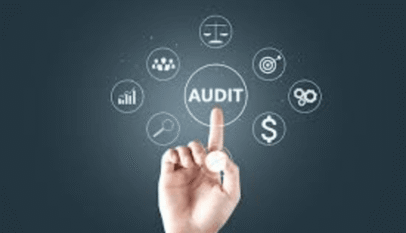
Anger management Calgary Alberta, focuses on helping individuals understand and control their emotional responses effectively. Many local services provide structured programs that teach practical techniques to reduce anger and improve communication.
The most effective anger management programs in Calgary combine cognitive-behavioral strategies with personalized counseling to address the root causes of anger. These programs aim to equip participants with tools to handle stress and conflict in healthier ways.
Access to professional support in Calgary is available through community centers, private therapists, and specialized clinics. Choosing the right program depends on the individual’s specific needs and goals for personal growth.
Anger Management Services in Calgary, Alberta
Anger management services in Calgary address different needs through tailored programs and therapies. These services focus on helping individuals recognize triggers, develop coping skills, and improve emotional regulation.
Types of Anger Management Programs
Calgary offers a variety of anger management programs designed to match different severity levels and personal circumstances. Programs range from short-term workshops to longer therapeutic courses.
Some programs emphasize cognitive-behavioral techniques (CBT), teaching clients to identify and change unhelpful thought patterns. Others incorporate mindfulness practices or stress reduction strategies. There are also intensive programs for individuals referred by courts or workplaces.
Programs vary in duration, typically from a few weeks to several months, depending on the participant’s requirements and provider. Many providers include progress tracking and follow-up support to ensure lasting results.
Individual Therapy for Anger Issues
Individual therapy in Calgary uses private sessions to provide personalized attention to anger problems. Therapists focus on understanding specific anger triggers, underlying causes, and behavioral patterns unique to each person.
Therapists often use evidence-based approaches like CBT or dialectical behavior therapy (DBT) to develop coping mechanisms. Therapy targets emotional regulation, communication skills, and stress management.
One-on-one sessions allow clients to explore related issues such as anxiety or past trauma that may contribute to anger. Confidentiality and a safe space ensure openness and honesty, benefiting long-term emotional growth.
Group Sessions and Workshops
Group sessions provide a collaborative environment where individuals share experiences and learn from peers. Workshops typically cover anger management skills in a structured format with a facilitator.
Participants practice techniques like relaxation exercises, assertiveness training, and recognizing early warning signs of anger. Group settings can help reduce feelings of isolation or embarrassment by connecting people with similar struggles.
Workshops vary from open community sessions to closed groups with consistent participants. The interactive format encourages accountability and support while allowing for diverse perspectives on anger management.
Benefits and Outcomes of Anger Management
Effective anger management leads to noticeable changes in how individuals regulate emotions, communicate, and handle conflict. This results in better emotional control, healthier relationships, and sustainable coping strategies.
Emotional Health Improvements
Anger management helps individuals recognize early signs of anger and respond in controlled ways. This reduces the frequency and intensity of angry outbursts, lowering stress levels.
Participants often experience decreased anxiety and fewer mood swings, contributing to overall emotional stability. It also promotes self-awareness, allowing them to identify triggers and patterns behind their anger.
Regular practice of techniques like deep breathing and cognitive reframing enhances mental clarity. This supports improved decision-making under pressure and increases resilience to difficult situations.
Enhancing Relationships
Learning to manage anger positively impacts personal and professional relationships. Clear communication replaces reactive responses, reducing misunderstandings and conflicts.
Improved anger control fosters empathy and patience, allowing for healthier interactions with family, friends, and coworkers. This strengthens trust and respect in daily connections.
Consistent use of anger management skills can resolve long-standing conflicts. Individuals become better equipped to handle disagreements calmly, increasing cooperation and mutual support.
Long-Term Strategies for Success
Anger management programs teach lasting skills rather than quick fixes. Techniques such as mindfulness, journaling, and problem-solving become routine tools for handling stress and frustration.
Setting realistic goals and regularly assessing emotional responses helps maintain progress over time. Support groups or ongoing counseling may be recommended to reinforce habits.
By integrating these strategies into daily life, individuals reduce the risk of relapse into harmful behavior. This promotes sustained emotional balance and healthier decision-making in challenging situations.
Kids Swimming Lessons Essential Tips for Safety and Skill Development
Kids swimming lessons teach essential water safety skills and build confidence in the wate…








